Introduction
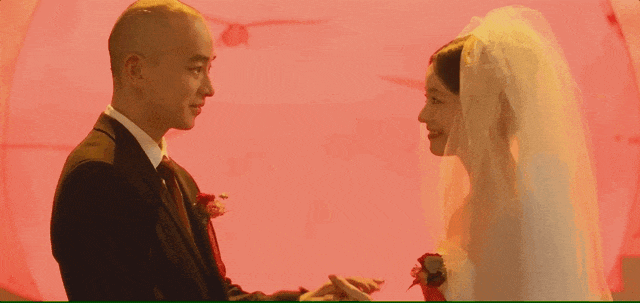
I was interested in watching this movie when I saw the GIF above, which I made into the featured image. I saw that the man has stitches on his shaved head. I assumed he had a surgery, most likely from a brain tumor. After I researched it online, it was based on a real story, and it had a good rating on Douban, which was 8.0 by the time I wrote this article. The movies also won 11 awards.
The article title, “The Most Pragmatic Marriage Deal, The Most Emotional Eternal Promise,” comes from the article’s native title 我们一起摇太阳, which translates to the phrase mentioned.
Movie Info
Movie title: Viva La Vida (Native title: 我们一起摇太阳 )
Alternative title: Wo Men Yi Qi Yao Tai Yang, Let's Shake the Sun Together
Genres: Romance, Family, Melodrama
Release Date: Feb 10, 2024
Duration: 2 hr. 9 min
Director: Han Yan ( 韩延 )
Screenwriters: Han Yan ( 韩延 ), Li Fu/Li Liang Wen ( 李弗 / 李亮文 ), Wang Xiao Ai ( 王小艾 ), and Yang Fu Zhi ( 杨富芝 )
Adapted from the article "Zui Gong Li Di Hun Yin Jiao Yi, Zui Dong Qing Di Yong Heng Yue Ding" (最功利的婚姻交易,最动情的永恒约定). It translates to "The Most Pragmatic Marriage Deal, The Most Emotional Eternal Promise."
Where to watch: Netflix
Trailer:
Based on a True Story
Clipping from the newspaper article (click on the link)
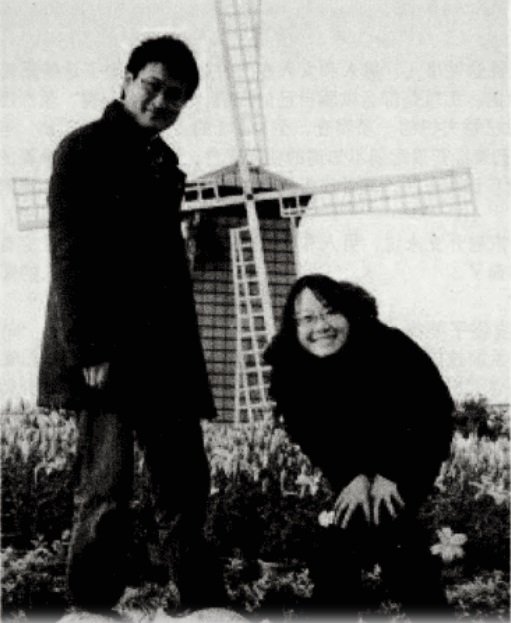
The real couple: Yu Jian Ping and Wang Xiao
Online article (click on the link)
English translation, I put it in a spoiler tag to keep the article tidy.
In 2012, 24-year-old Wang Xiao was diagnosed with advanced uremia, but no relative could give her a kidney transplant. Without the transplant, she would not have lived for a year, and her life entered the countdown. Later, someone told her that she could go to the tumor support group to find a man who matched her to marry. After he dies, she can receive organ donations as her wife. So, Wang Xiao really posted a marriage notice in the group, and she clearly wrote that she needed the other party’s kidneys. Although this matter is a bit ridiculous, she has no other choice to survive.
At this time, a leukemia patient named Yu Jianping found her, and their blood types and the like were very matched. The two made an appointment to meet in the park, and they recognized each other at a glance. During the chat, Wang Xiao discovered that Yu Jianping had given up hospitalization and was completely maintained by drugs. Wang Xiao is working hard to survive, but Yu Jianping seems to no longer care how long he can live. In fact, Yu Jianping is two years older than Wang Xiao and graduated from Xi’an Jiaotong University. He once had a beloved girlfriend, but he was diagnosed with leukemia at the time of marriage. His girlfriend left him, and his father sold the house to cure him. The light of his life was instantly extinguished, leaving only endless torture. As he became more and more desperate, he was also more and more worried about his parents. After he left, his father would be left alone.
When he saw Wang Xiao’s marriage announcement, he also had an idea in his heart. Two people who were also in desperate situations were looking for a glimmer of hope, and they signed an agreement that if the woman received a kidney transplant from the man, she would take care of his father until she died. One wanted a kidney, and the other wanted to arrange the issue of his father’s pension after his death, and the two reached an agreement.
So we signed a contract and obtained a certificate. In order to successfully pass the OPO review of the organ acquisition organization, we also lived together. Originally, this was just a helpless deal in despair, but they developed true feelings when they got along. Wang Xiao’s cheerful and lively gradually infected Yu Jianping, who was depressed by the illness, and he also used his humor to amuse Wang Xiao.
On New Year’s Day 2014, Yu Jianping confessed to Wang Xiao, saying that “I like you silly girl”, but Yu Jianping disappeared after meeting. By the time Wang Xiao found him, he had given up treatment and even wanted to speed up his death. He said: “If I die now, I can still save you”.
She told Yu Jianping that she hadn’t been in a relationship yet, could he just be her practice partner just this once? Wang Xiao gave Yu Jian hope for his life, and the two began to actively face and fight the disease together. Yu Jianping has the motivation to survive, but the reality is cruel. His surgery fee is 300,000, which is huge for them.
In order to raise money, Wang Xiao decided to make handmade immortal flowers and sell them for money. Before the Spring Festival in 2014, the “Yongsheng Flower” flowers stall Wang Xiao and Yu Jianping had opened in the West Market Square of Datang. Wang Xiao wrote the story of the two people getting to know each other and falling in love into cards and hung them in front of the flower stall. She wrote: “This is the eternal flower blooming in the ruins, the flower is eternal, and love is eternal.”
Many enthusiastic people extended a helping hand after seeing this, and even a kind-hearted person bought 70,000 yuan of immortality flowers at one time. After hearing this, Wang Rong, an owner of the flower art store, purchased a large amount of goods from Wang Xiao, and she also called on other business colleagues to find Wang Xiao to purchase goods. In this way, Wang Xiao and Yu Jianping’s Yongsheng small business grew bigger and bigger. In less than two months, they collected all the costs required for the operation.
Fortunately, Yu Jianping’s operation was successful, and as he slowly recovered from his health, a miracle was still happening. Wang Xiao’s health gradually improved without a kidney transplant. The doctor soon told them that she could survive without a kidney transplant.
It turns out that love can really transcend life and death. They are obviously two people who are tricked by fate, but they never give up and believe that their lives will definitely be sunny. A miracle really happened, and both Wang Xiao and Yu Jianping survived. They had a wedding, and they went from fake couples to real lovers.
Awards
Viva La Vida brought home 11 awards from various national awards ceremonies in 2024. I put it in a spoiler tag to keep the article tidy.
37th Golden Rooster Awards
Best Actress: Li Geng Xi
Best Screenplay: Han Yan, Li Fu
19th Changchun Film Festival – Golden Deer Award
Best Actor: Peng Yu Chang
Best Actress: Li Geng Xi
Hengdian Film Festival of China
Best Actor in Film: Peng Yu Chang
10th Wenrong Awards
Best Actor: Peng Yu Chang
Sound Guild Awards,China
Sound Production Excellence Award-Film
Weibo Awards Ceremony – Movie Awards
Expressive Actor of the Year: Li Geng Xi
Glamour Actor of the Year: Peng Yu Chang
Word-of-mouth Movie of the Year: Viva La Vida
China Movie Channel Award
Young Actor of the Year: Li Geng Xi
Synopsis
A young woman who needs a kidney transplant wants to marry someone who will be able to donate a kidney, and she meets a young man who has a brain disease (source: IMDb).
Characters
Main Characters
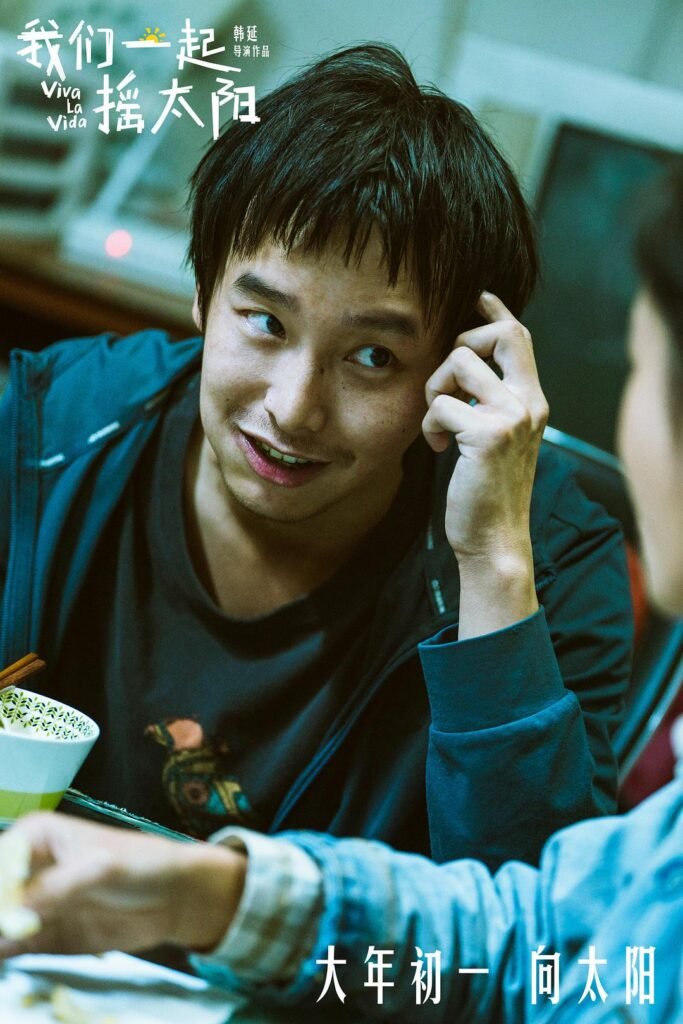
Peng Yu Chang ( 彭昱畅 ) as Lu Tu
Lu Tu, who lives in a complex social environment, struggles and grows. Through challenges and hardship, he gradually transforms from a clueless young man into a more mature and responsible person.
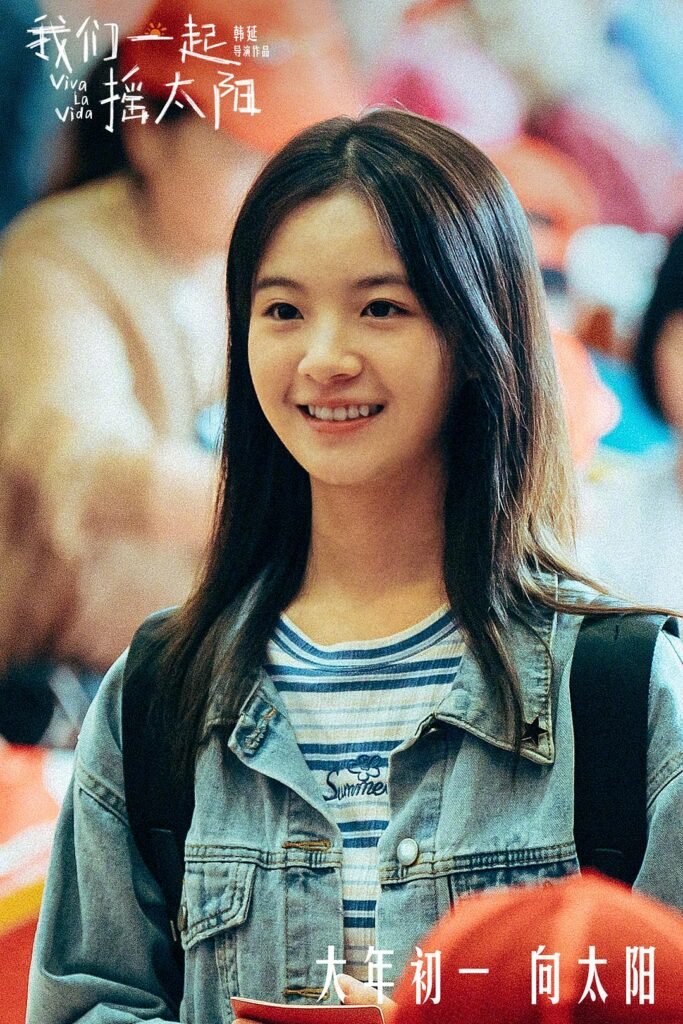
Teresa Li/Li Geng Xi ( 李庚希 ) as Ling Min
A young girl who suffers from severe uremia. A severe kidney disease not only affects her daily life but also exerts tremendous pressure on her psychological and mental state.
Supporting Characters
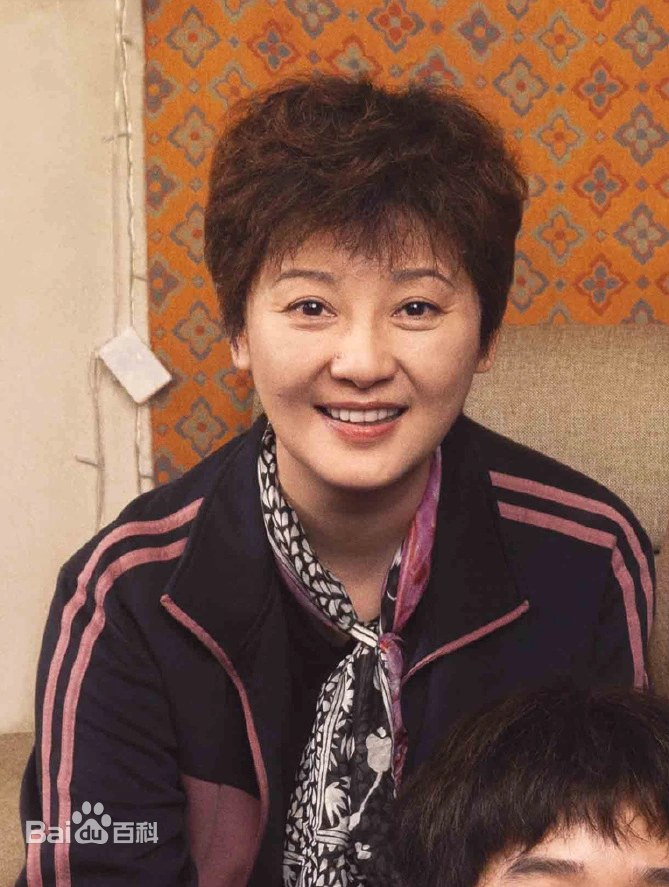
Tao Yi (Xu Fan) – Lu Tu’s mother
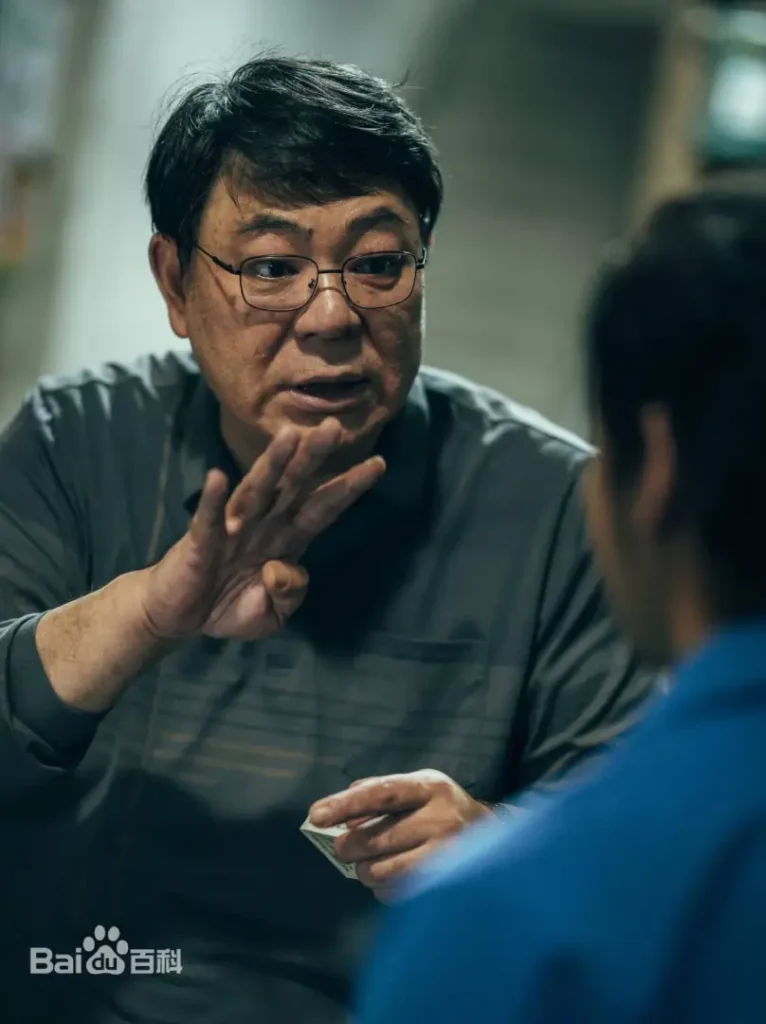
Ling Tian Xong (Gao Ya Lin) – Ling Min’s father
Review
Story and Plot
Realistic portrayal of illness: The movie stands out for its honest depiction of the daily struggles of those with chronic illnesses, particularly kidney failure.
Character-driven narrative: The movie beautifully depicts the evolving relationship between Ling Min and Lu Tu, as well as the genuine portrayal of the Chinese family’s bond.
Focus on life and hope: Despite the serious subject matter, the movie’s main theme isn’t just the cruelty of illness, but the characters’ courage and passion for life.
Refreshing melodrama: For an Asian drama, the movie’s approach to the melodrama genre is refreshing. It doesn’t overly use a tearjerker approach.
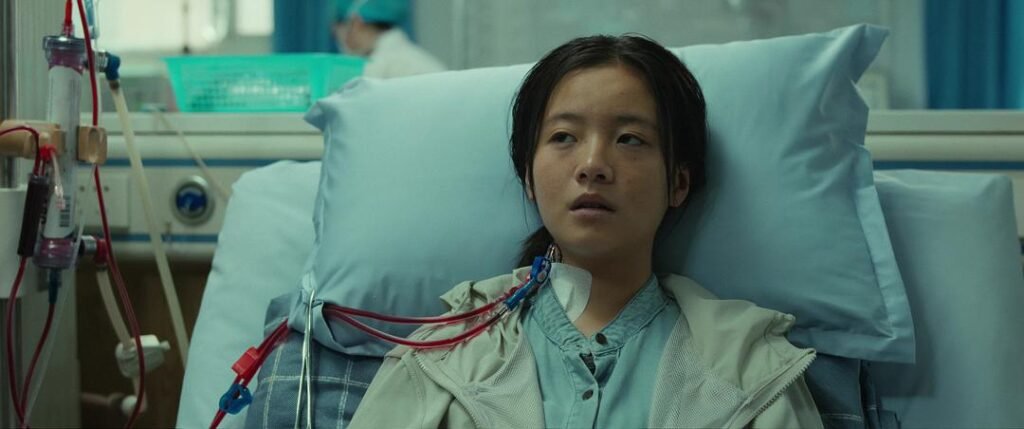
Theme and Messages
Theme: An exploration of life and death as it examines the challenges and emotional impact of chronic illness on individuals and their families, focusing on the resilience and love that can be found even in difficult circumstances.
Messages:
- Overcoming adversity: How individuals with serious illnesses can find meaning and joy in their lives, even amidst hardship. The characters face physical and emotional challenges but find strength in their shared struggles and the support they provide each other.
- The power of love: The movie emphasizes the transformative power of love, demonstrating how relationships can provide comfort, support, and a sense of hope during difficult times. The characters’ bond strengthens as they navigate their illnesses and find ways to make the most of their lives together.
- Finding internal strength: The movie illustrates how individuals can tap into their inner resilience and find the courage to face life’s challenges head-on. It suggests that by embracing love, support, and a positive mindset, even in the face of despair, one can activate their own “sun within” and overcome the turbulence of life.
- Celebrating life: The title “Viva La Vida” itself is a call to celebrate life and make the most of every moment. The movie encourages viewers to appreciate their own lives and the beauty around them, even when facing difficulties.
- The importance of connection: The movie highlights the importance of human connection and the power of support networks. The film emphasizes how individuals can find strength and healing through relationships with loved ones and even through meeting new people who share similar experiences.
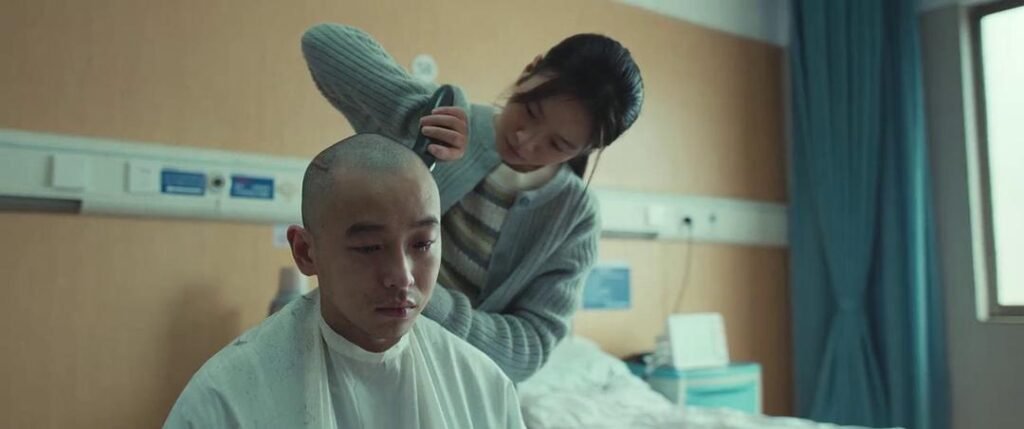
Pacing and Editing
Pacing:
The movie’s pacing keeps viewers engaged and emotionally invested throughout the narrative. The story carries us along, creating a sense of urgency and immersion in the characters’ struggles and aspirations. The movie begins with a detailed and somber look at life with a serious illness. Around the 20-minute mark, the movie transitions into an unconventional romantic comedy. Despite its heavy subject matter, the movie avoids being overly sentimental or emotional.
Editing:
The editing enhances the visual storytelling using handheld cinematography and jump-cut editing, which looks like documentary realism.
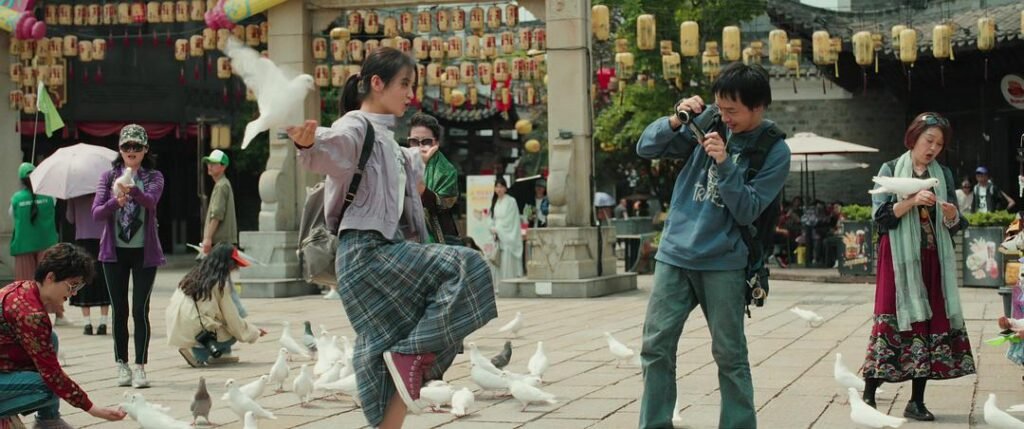
Characterization and Acting
The characters are portrayed as authentic and relatable, even in their extraordinary situations.
The Female Lead, Ling Min, is portrayed as a pragmatic and reserved individual who has to live a life dictated by dialysis and strict dietary restrictions. Her journey involves posting a video online offering to marry someone who can donate a kidney, highlighting her desperation and resilience.
The Male Lead, Lu Tu, seemingly quirky and carefree, but this facade hides a deep sense of understanding and empathy for Ling Min’s struggles. His character evolves as he reveals his own medical condition and develops a strong connection with Ling Min, leading to a shared journey of healing and support.
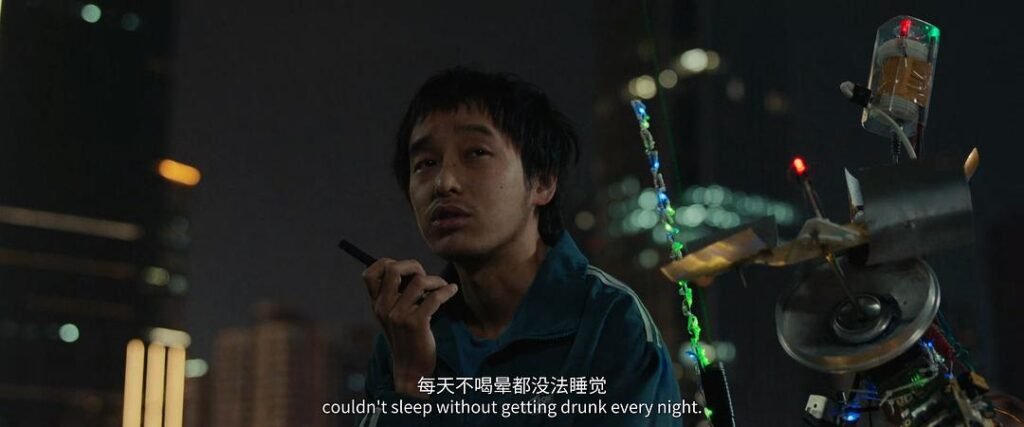
Acting:
Peng Yu Chang and Li Geng Xi’s acting is praised for their ability to immerse viewers in the characters’ struggles and aspirations, making them feel like they are living through the characters’ experiences. The performances are described as genuine, heartfelt, and impactful.
Having seen Peng Yu Chang in several movies and drama, I applaud the actor for his ability to bring any role to life.
In my opinion, both the leading actor and actress’ acting sets the film apart, even within a romance or melodrama genre that has seen similar stories.
Cinematography and Visual Effects
Cinematography:
The movie uses a lot of mobile phone shooting materials, creating an amazing sense of life. Even in the end-of-credit Easter egg, the sweet moments of the male and female protagonists are depicted. These clips, which are not considered plot, play a very important role in improving the overall atmosphere.
Visual Effects:
Accordingly, the film’s depiction of medical treatment and the daily lives of uremia patients is meticulous. Even viewers with no knowledge of medical science can feel the various troubles faced by patients during their medical journey. This movie showcases a plethora of details, such as the overused and hard-to-light gas stove and the stains on the walls of the residential complex, which can evoke similar scenes from real life for the audience. Even the makeup and styling of Lu Tu and Ling Ming at the beginning were deliberately chosen to be simple and even somewhat shabby, to depict the state of patients struggling and suffering through their illnesses.
Through the construction of a lot of details, the characters are more vivid and make the audience believe that the story is real.
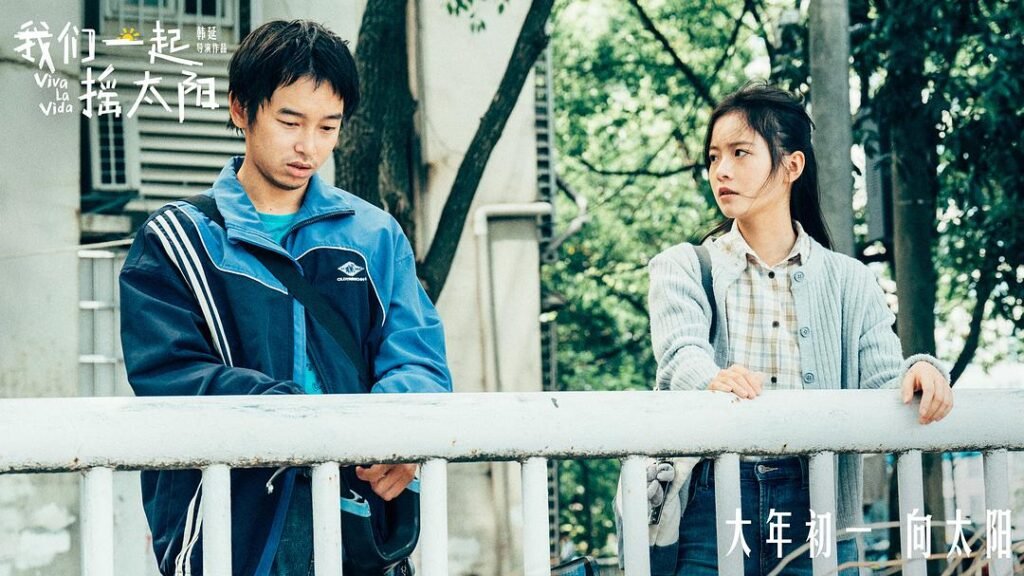
Original Soundtrack and Score
Promotional song: 米店 (“Rice Shop”) by Zhang Wei Wei ( 张玮玮 )
Promotional song: 摇太阳 (“Shake the Sun) by Fang Fang ( 方芳 )、Peng Yu Chang ( 彭昱畅 )、and 李庚希 (Li Geng Xi)
Theme song/ending song: 自己 (“Myself”) by Zhang Jie ( 张杰 )
Conclusion
With love, Lu Tu and Ling Ming move forward hand in hand, support each other, and their hope and confidence in the future are particularly precious. Life always faces the reality of death, but as long as we believe that there will be small good things in the future, we will be worthwhile to continue to live and wait for the rising sun of the new day to rise.
After watching this movie, when I see someone living a harder life than I do, I will be more grateful for the little happiness I have now. I left this movie while mustering up the courage to face the challenges in life.





Thank you for this review! I watched this movie expecting the tropey ill-fated romance but this movie really went beyond because of the actors and portrayal.
Yes, because it’s based on a true story, in which the real couple have a happy ending, I don’t think the movie can have a sad ending 🙂